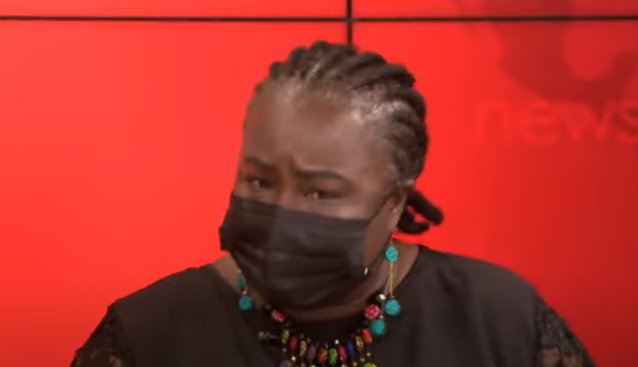Former Dean of the University of Ghana School of Information and Communication Studies, Professor Audrey Gadzekpo, has blamed the absence of laws that explicitly provide for regulation of the media, for the recent arrests of journalists in the country.
Interacting with Newsfile host, Samson Lardy Anyenini, she bemoaned how despite the change in the media landscape, there have been no laws to regulate how the broadcasting media operates.
"The reason we are in this space is that there are no explicit laws governing and regulating the media, particularly the broadcasting media where all these cases come from."
"We are always overtaken by events. We had a changing media landscape. We needed, immediately before we licensed the 684 or so radio stations that have been granted authorization, almost 500 of which are on-air, a law explicitly stating how the terrain should be regulated. So that people who feel aggrieved know clearly where to go for relief. We don't have that," she said on JoyNews on Saturday.
She noted that at the World Radio Day event held on Friday, Professor Amin Alhassan of Ghana Broadcasting Corporation (GBC) pointed out that the law as it stands now, is obsolete.
Her concerns are in relation to the surge in the apprehension of journalists in the country.
Onua TV’s Morning Show host, Blessed Godsbrain Smart, was detained by National Security Operatives after he had been granted bail by the court following his arrest over extortion.
He was detained along with another staff, Eric Dadzie Copperfield, popularly called DJ GH Boy who is also facing charges of abetment to extort.
Not long after, a journalist with Power FM, Oheneba Boamah Bennie, was handed a 14 days jail term for threatening and insulting President Akufo-Addo.
Also, Accra FM’s Bobie Ansah, who accused First Lady, Rebecca Akufo-Addo of theft, was picked up by persons purported to be National Security operatives and has been charged with the publication of false news and offensive conduct.
According to Prof. Gadzekpo, despite numerous promises, successive administrations have failed to provide legislation but rather relied on sections of the law to penalize journalists.
In view of this, she indicated that "it is time to stop making false promises and have laws that regulate."
"If you had a law that spelled sanctions, some of those sanctions could include even shutting down radio stations. So you don't need to put them in jail," she added.
Latest Stories
-
Center for International Mediators and Arbitrators holds Investiture in Ghana
5 minutes -
Energy Commission denies issuing charcoal licenses for export amid booming trade in Northern Ghana
10 minutes -
DVLA to introduce chip-embedded number plates
17 minutes -
2025 BECE: Kintampo court sentences 4 for malpractices, others remanded
26 minutes -
Thai PM faces calls to quit after leaked phone call
35 minutes -
The Cedi appreciation and its impact on real estate
35 minutes -
NSS personnel will undergo military orientation, not training – Deputy Director clarifies
42 minutes -
Petition against SC judge nominee Justice Ackaah-Boafo derails vetting session
44 minutes -
Bro Philemon signals big comeback to Ghana’s gospel music scene
48 minutes -
Breakfast, Supper and Cholesterol levels
51 minutes -
Abena Opokua Ahwenee: The voice, fire and fearless heart of Akan radio
52 minutes -
John Jinapor inaugurates new NPA Board with Huudu Yahaya as chairman
1 hour -
Telecel reacts to GH¢2m lawsuit over alleged unauthorised use of Makola woman’s picture
1 hour -
U.S. government donates 10 liquid oxygen plants to GHS
1 hour -
33 million posts analysed since 2022 as FIFA marks International Day for Countering Hate Speech
2 hours

